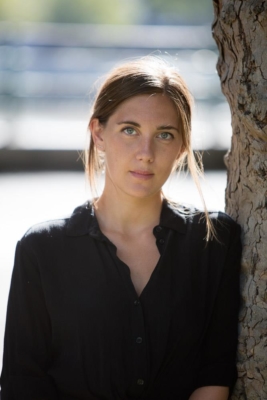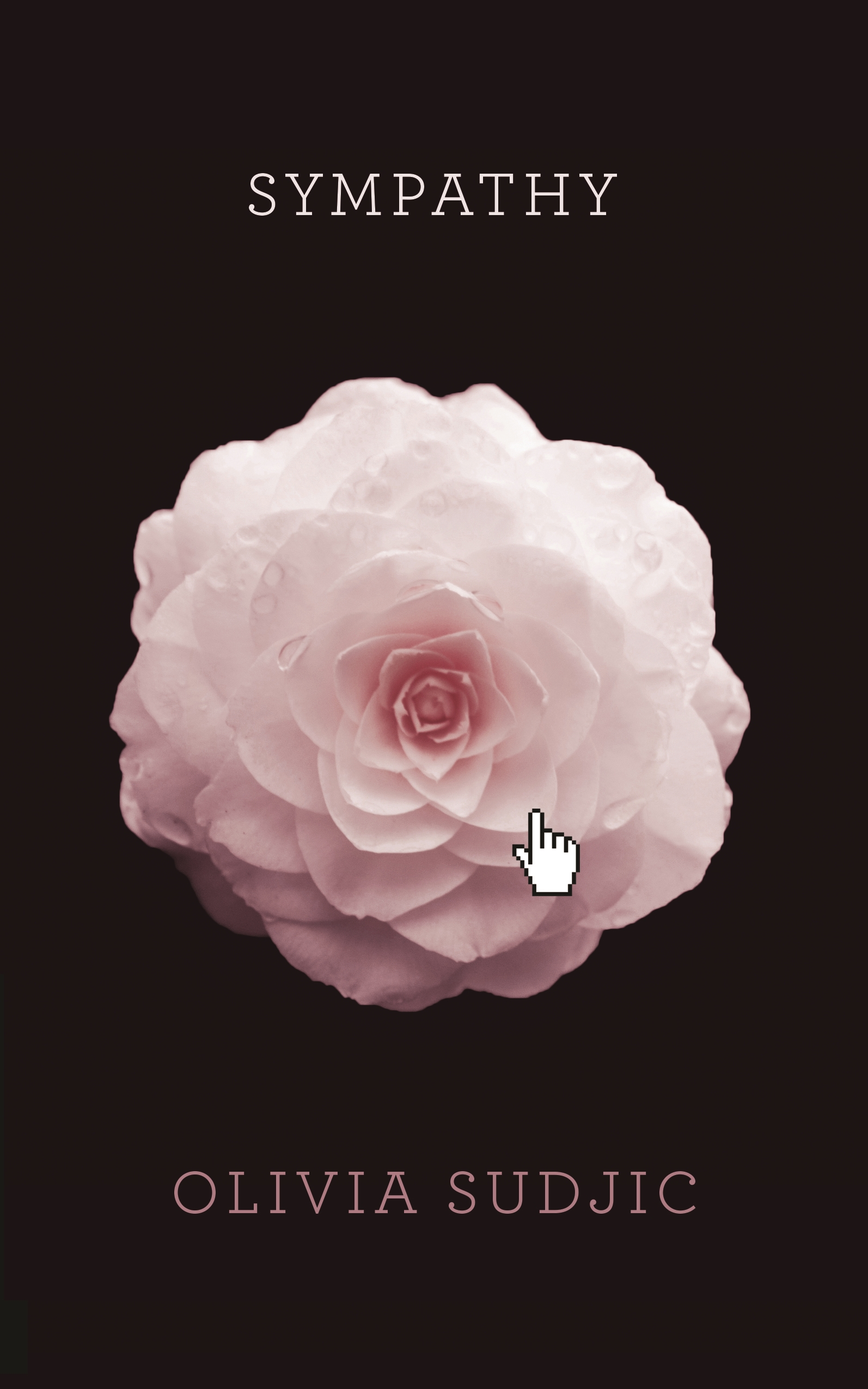Depending on the day, living in this digital age can be either a phenomenal blessing or a nightmare you can’t escape. In debut novelist Olivia Sudjic’s Sympathy (Houghton Mifflin Harcourt), a young woman writer (and subsequently, an internet stalker) moves to New York City and becomes disturbingly obsessed with a fictional Japanese writer Mizuko Himura, whom she is convinced is living a life parallel to hers. What unfolds is a dark narrative about the far-fetched connections we create online and in our heads, and how we attempt to pass them along as sheer fate or coincidence. Ahead, we chat with the UK-based Sudjic on how she fought through procrastination to complete her first book, her advice to aspiring novelists, and how a university class spawned an unlikely inspiration for Sympathy. —JL
What was the genesis for the idea of Sympathy?
I was interested in a 17th century polymath called Robert Fludd, thanks to taking a course at university taught by a wonderful woman who knew about obscure things and was rumoured to own pet ferrets. Through Fludd I discovered the “powder of sympathy,” a kind of bogus medicine. I was planning on writing a David Mitchell-type of novel about this powder, which purported to use sympathetic magic to connect things across time and space. Then I decided I wanted to explore similar ideas but through our modern version of that medicine: technology. I wanted to take on the challenge of writing a kind of mimetic novel about exactly the type of technology that is supposedly killing off books.
Did you ever have an experience of an online relationship yourself?
Not one conducted purely online, but I once had a brief spell on Tinder, and I’ve had break-ups where that relationship should feel over but, because of social media, archived emails, etc, it doesn’t. Mainly I drew on the experience of having an online relationship with myself. I don’t mean that in a purely narcissistic way (though that is of course part of it), but also the way that our identity is leached from us online. Whether we are conscious of uploading it or not, it’s being picked off us through our every click, making our phone into a tracking device. So a ghost version of me exists online, made of metadata, and it follows me around, like a stalker girlfriend, logging everything I’ve done in the past and anticipating what I will do next.
What kind of research went into the writing of this story?
There was the historic stuff around the powder of sympathy, then a lot on Particle Physics. At one time I felt like an expert in layman explanations of the Higgs Boson, now I can’t remember anything. I read a bit about Tim Berners Lee, who created the internet for physicists while working at the European Organization for Nuclear Research. I also read a lot about how smartphones and computers get to know us, digital footprints, black box algorithms and so on.
Sometimes I veered too close to writing a dissertation because I found it fascinating, and my UK editor had good advice when she said that often the best research doesn’t make it into the final draft. I also drew on a lot of news reports and Wikipedia entries — which, purposefully, are recorded in the book itself.
As a young writer, how did you find the time to write this novel?
I was lucky in that it didn’t take that much time to write it and I have a very supportive family. I took a six-month unpaid sabbatical that my then-boss suggested to me instead of quitting outright, in good faith that I’d return. I tutored and did random jobs to make money. I moved in with my parents. But when you suddenly have unlimited time to write, you often don’t. Instead I made big charts and planned every last detail as if I was about to commit a murder. I’d never had free time before, and it really threw me at first.
As the sabbatical was drawing to an end, I realized that I needed to get rid of my plan B (my stable job to return to) if I was going to ignite enough fear to get it done. I called up my boss and quit for good. Then, my worried parents made me call back up and un-quit, at which point I nearly got transferred to Dubai as they’d replaced me in the London office. There’s nothing like the threat of leaving your life in London for a job you don’t want to do in Dubai to light a fire under you. In the end, I went to live with some family in the middle of nowhere, and wrote the majority of the book in a month. But I couldn’t have done it if my family hadn’t been willing to support me, if I’d had anyone (like a kid) who depended on me, and if I hadn’t very swiftly got myself an agent who acted as a mentor.
How long did it take to complete the manuscript?
I left my job in May 2014 and it got sold at the Frankfurt Book Fair in October 2015, but I only started writing it properly in January of that year.
What is your advice for aspiring novelists?
Reduce your living costs as dramatically as you can. Put up with any temporary discomfort as it’s a good spur to getting things done in order to change your situation.
If, like me, you can’t afford a creative writing MA type course, find someone who will hand out deadlines and read your work. One person you don’t know well but respect is better than a group of friends. You can’t, and shouldn’t, write to please everyone. Sales are (obviously) great, but for your first book, so is finding one cult-like devotee whose reassuring words you can return to when you wonder what the hell you’ve got yourself into.
Read everything like this about how other people write — it was like crack to me when I started — but don’t forget to actually start!
If you’re unschooled and are only just working out how to write, avoid birthing and killing off characters. I wish I’d avoided it completely myself. It draws attention to the absurdity of creating people out of ink (or keystrokes). With my next one, I’m also trying to prune away backstories, as if I’m writing a short story instead. It’s very freeing and leaves room for the reader.
The copy edit is like a really long, drawn-out, and terrible breakup. Remember that it’s coming up and prepare for the necessary time and energy that it requires. That said, it’s never really done until it’s printed, at which point you want to pulp it and start over. Zadie Smith writes about this really well, and it’s very acute with a first novel, as you’re synonymous with it until you get another one out there.![]()

